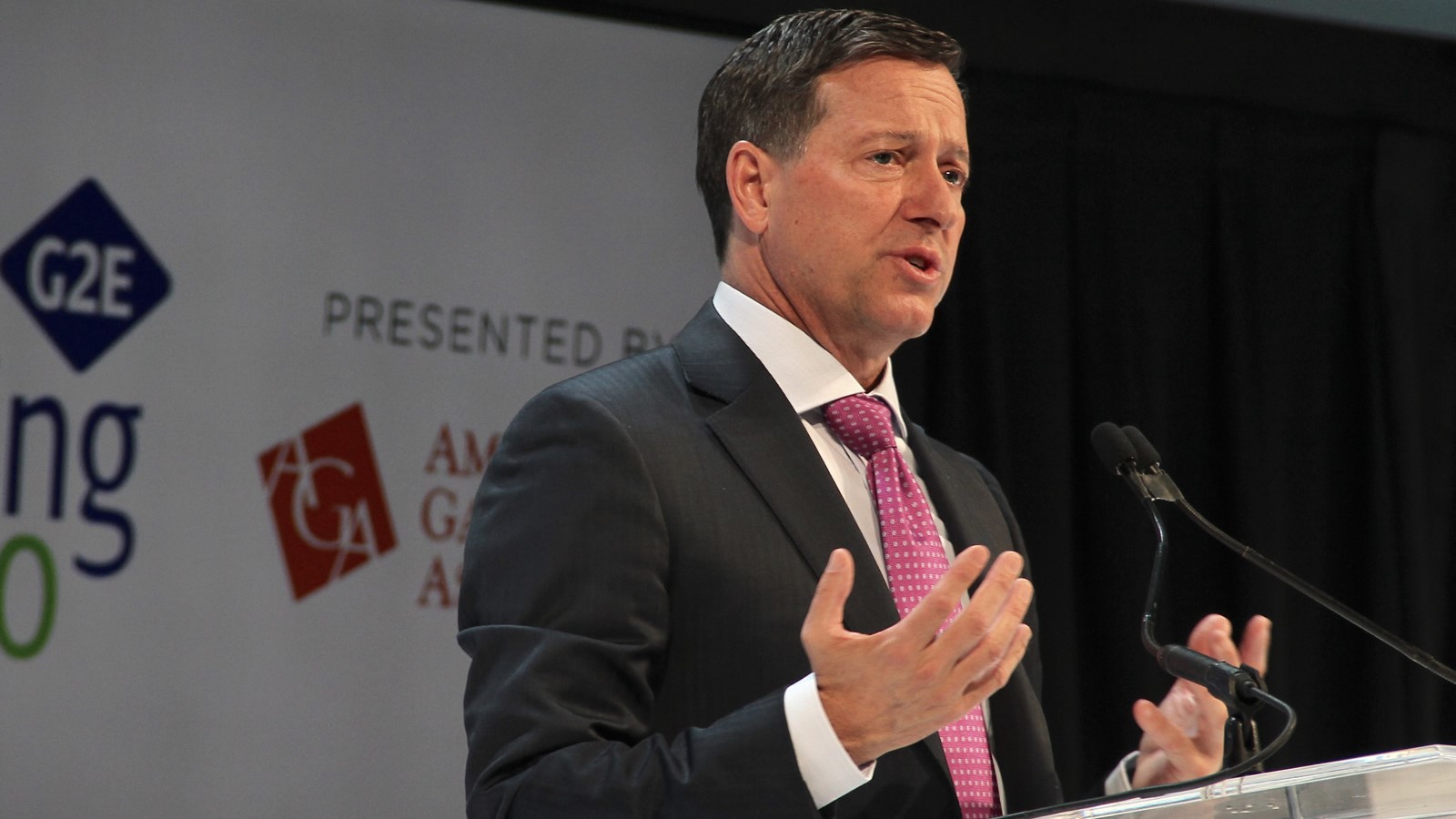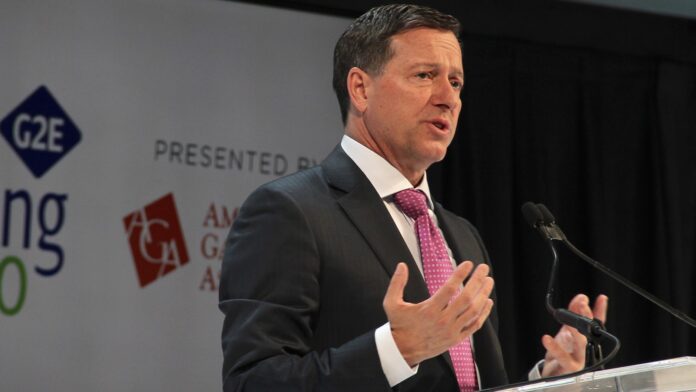
As the Denver Nuggets and the Miami Heat meet in the NBA Finals, with two games of the series now played, Americans are set to bet tens of millions of dollars on the outcome. As the public embraces sports betting and the media draws attention to problem gambling, the discussion about responsible wagering is now more important than ever, says American Gaming Association CEO Bill Miller.
Research from Miller’s AGA shows that the overwhelming majority of American adults (85%) say the U.S. Supreme Court made the right call overturning the federal ban on sports betting in 2018. Following the move to allow states to decide whether to legalize the activity, more and more have now launched their own legal markets.
With the NBA Finals now underway, a surge in sports betting is expected, and safe gambling will again make the headlines. In an op-ed for USA Today, Miller said the discussion is important and argued that it is one “that the gaming industry welcomes,” calling for more efforts to help problem gamblers.
“Even before the Supreme Court ruling, illegal sports betting was a $150 billion annual market,” says the AGA CEO. “Since the court’s decision, 37 states and Washington, D.C., have concluded that legal, regulated sports betting is better than the illegal markets that had always existed. But the rapid expansion of sports betting has prompted some to claim the court’s ruling is fueling a surge in problem gambling. Does anyone really believe problem gambling didn’t exist before 2018 when illegal sports betting was an annual $150 billion market?”
📰 In @USATODAY this morning, @BillMillerAGA writes that the expansion of legal sports betting is sparking a national conversation about responsible and problem gambling—a conversation the industry welcomes.
Read his full op-ed: https://t.co/iJemvk16xU pic.twitter.com/k0sIugz6AL
— American Gaming Association (@AmericanGaming) June 2, 2023
The American Gaming Association has long warned that illegal sports betting does not generate any money to support problem gambling programs. Instead, the trade body says that nearly every dollar that states earmark for problem gambling services – a figure that reached $94 million in 2021 – comes from casino gaming taxes, including rising revenues from sports betting.
The AGA chief executive argues that, partly, that is because as legal betting grows, the illegal market shrinks. From accounting for $150 billion in bets, the black market shrank to $64 billion last year. In 2019, less than half of online bets took place legally. Now, five years after the federal ban on sports betting was overturned, three in four bets occur in regulated markets.
But while Miller said that rising tax revenues for support services and the migration of players to a regulated legal market are advancing responsible play, he warned more can be done. The AGA boss said that states should dedicate funding to advance responsible gaming education and problem gambling services, “not divert it for general use.” This includes funding for consumer education, research and problem gambling treatment, “building upon the industry’s investments in responsible gaming tools and education.”
“The money is there. Sports betting has generated $3 billion in taxes for state governments since 2018. Yet some jurisdictions are diverting resources intended to fight problem gambling,” warns Miller. “For example, in Washington, D.C., the city council approved the mayor’s budget plan for 2024 that doesn’t take advantage of the funding raised for problem gambling.”
But in addition to better use of state resources, Miller also called for all stakeholders to “evolve and adapt” to the rapidly growing sports betting market, noting AGA has done its part by strengthening its Responsible Marketing Code for Sports Wagering. In addition to banning advertising on college campuses, the code now prohibits college partnerships promoting sports wagering, bars operators from advertising “risk free” betting, and bans name, image and likeness deals with college athletes.
“Every AGA member agrees to adhere to the code, and we believe every business operating in the United States should meet the high standard it sets,” the AGA boss said in his USA Today op-ed. “Advertising is one of the top five reasons bettors move to the legal market, and it raises awareness about problem gambling resources.”
This is an essential conversation and one the AGA and our members will continue to advance as the legal market grows. https://t.co/V9OolHPNzB
— Bill Miller (@BillMillerAGA) June 2, 2023
Lastly, Miller noted as a third point in which more work is needed that states make sure help is easily accessible. While problem gambling helplines are a vital resource for fans who need help, the lists of state-specific hotlines presented in tiny type at the end of a TV ad are “a barrier” to people seeking assistance.
For Miller, state regulators and policymakers should thus allow advertisers to promote a single, national hotline. And, just as important, anyone seeking help through this national resource should receive “consistent, quality care” at all times.
“As sports betting expands, news reports point to increased helpline call volumes as evidence that problem gambling is surging. But that’s not the full story,” says Miller’s piece. “In Pennsylvania, for example, 80% of helpline calls had nothing to do with people seeking help for problem gambling. The Virginia Council on Problem Gambling reported the same for 87% of its calls. And experts say a call increase may actually signal greater awareness that help is available – a shared imperative for anyone involved in legal sports betting.”
With legal sports betting generating greater awareness for safe gambling resources and supporting public services, a national conversation about the best way to help those struggling with problem gambling has been sparked. “Problem gambling resources have never been better funded and marketed than they are today,” concluded Miller. “And that’s evidence that states that have embraced legal sports betting made the right call.”
Original article: https://www.yogonet.com/international/news/2023/06/05/67405-legal-sports-betting-is-generating-greater-awareness-for-problem-gambling-resources-says-aga-ceo














